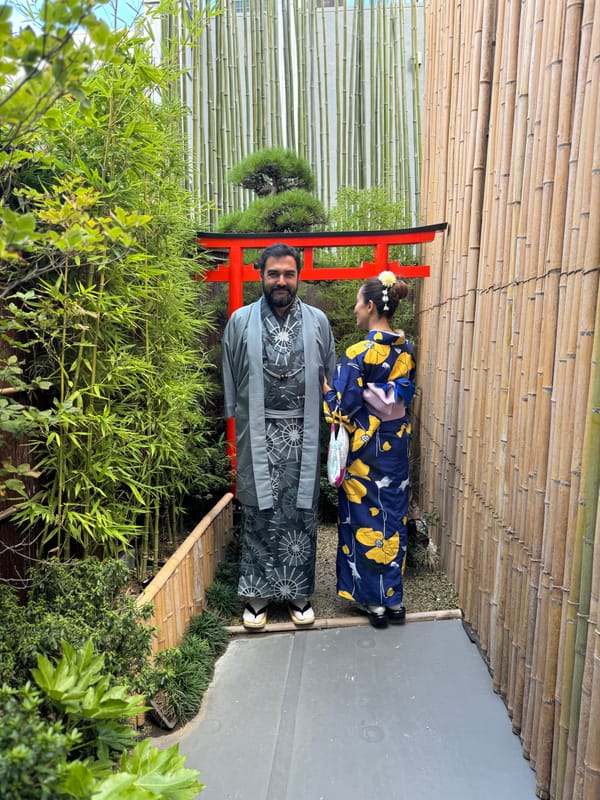Waiting Room Anthropology: What 200 Strangers and Their Phones Taught Me About Modern Loneliness

The fluorescent lights hummed overhead in the San Francisco jury assembly room, casting that particular institutional glow that makes everyone look slightly unwell. Around me, nearly 200 people sat in rigid plastic chairs, summoned by civic duty to this windowless room in the Hall of Justice. It should have been a fascinating social experiment—a true cross-section of the city forced together for hours with nothing but time.
Instead, it felt like sitting in a library of ghosts.
I counted the interactions during my first hour: a woman asked someone to watch her purse while she used the restroom. A man inquired about the WiFi password. That was it. Two conversations among two hundred people.
The rest of us existed in our own digital bubbles, necks craned downward in what chiropractors have dubbed "text neck," fingers scrolling through endless feeds of other people's lives while ignoring the actual lives sitting eighteen inches away. We had become experts at being alone together.
The Great Divide
What struck me most wasn't the silence itself, but the clear generational fault line running through the room. The older citizens—those who remembered life before smartphones became appendages—were the ones attempting eye contact. They looked around with the patience of people accustomed to waiting without entertainment, occasionally offering shy smiles or commenting on the proceedings.
A woman in her seventies near me kept glancing hopefully at her neighbors, clearly ready for conversation. She reminded me of my grandmother, who could strike up a meaningful chat with a stranger at the grocery store checkout line. But her potential conversation partners were busy photographing their jury summons for Instagram stories or catching up on work emails.
I watched one man, probably in his sixties, try three separate times to make small talk with people around him. Each attempt was met with polite but brief responses before his intended conversation partners returned to their screens. Eventually, he gave up and stared at the informational posters on the wall with the resigned attention of someone studying for a test.
The Irony of Civic Isolation
There's something deeply ironic about this scene. Jury duty represents one of our most fundamental civic responsibilities—the idea that ordinary citizens can come together, listen to evidence, and make fair decisions that affect real lives. It's predicated on our ability to connect with and understand our fellow humans, to see past our own biases and experiences.
Yet here we were, practicing isolation before we'd even reached the courtroom.
The orientation video played to a room full of people barely watching. It explained the importance of avoiding bias, of listening carefully, of considering different perspectives. But how can we practice those skills if we can't even make eye contact with the person next to us? How do we build the empathy muscles required for fair deliberation when we've forgotten how to engage with strangers?
What We've Lost
I found myself mourning something I'd never experienced: the jury duty of previous generations. I imagined rooms where people actually talked—where a retired teacher might chat with a construction worker about their kids' schools, where a recent immigrant might share stories with a fourth-generation San Franciscan, where the kind of casual "nosiness" that builds community bonds would naturally emerge.
That nosiness wasn't just idle curiosity—it was practice. Practice at being interested in people different from ourselves. Practice at finding common ground with strangers. Practice at the fundamental human skill of connection that democracy requires.
Instead, we've created a society where the default response to uncomfortable silence or unfamiliar people is to retreat into our devices. We've become so accustomed to curated connection—choosing exactly who we interact with and when—that random human contact feels almost invasive.
The Digital Comfort Zone
Our phones have become emotional support objects, providing instant escape from the mild anxiety of being present with strangers. Why make awkward small talk when you can scroll through TikTok? Why wonder about the person next to you when you can catch up with friends on WhatsApp? Why sit with the discomfort of silence when Netflix has episodes downloaded and ready?
But in choosing comfort, we've lost something essential. Those uncomfortable moments of waiting, of not knowing what to say, of reaching across difference—those are exactly the moments where empathy grows. They're the social equivalent of physical exercise: mildly unpleasant but ultimately strengthening.
The Older Generation's Gift
Watching the older jurors reminded me that this withdrawal isn't inevitable—it's learned. These were people who remembered when waiting rooms were places of conversation, when delayed flights meant talking to fellow passengers, when being bored together was an opportunity rather than a problem to solve with technology.
One elderly man eventually started reading a physical newspaper, and I noticed how it became a conversation starter. People could see what he was reading, comment on headlines, ask questions. His newspaper was public in a way our private screens never are. It invited engagement rather than signaling unavailability.
What We're Teaching Our Juries
As I sat there, I couldn't help but wonder: what kind of jurors are we creating in this age of digital isolation? If we can't practice the basic human skill of talking to strangers in a waiting room, how do we suddenly develop the ability to engage meaningfully in a jury room?
The skills are the same: listening to people different from ourselves, managing discomfort and uncertainty, staying present when things get awkward or difficult, finding common ground despite obvious differences. But we're out of practice. We've forgotten how to be curious about each other.
The Path Back
I'm not advocating for throwing our phones in the trash or returning to some imaginary golden age. But I am suggesting that we've lost something valuable in our rush toward digital connection, and spaces like jury duty waiting rooms reveal the cost.
Maybe the solution starts small. Maybe it's as simple as looking up more often, making eye contact, asking someone how their day is going. Maybe it's remembering that the person next to us has a story worth hearing, problems worth understanding, perspectives worth considering.
Maybe it's recognizing that our civic duty begins not in the courtroom, but in the waiting room—with the simple, radical act of seeing each other as more than just fellow screen-gazers.
Because if we can't connect over the shared experience of jury duty, how can we expect to connect over the shared experience of democracy? And if we can't practice empathy with the stranger sitting next to us, how can we practice it with the defendant whose fate might rest in our hands?
The fluorescent lights continued to hum. Around me, 200 people continued to scroll. But for the first time that morning, I put my phone away and looked around—really looked—at my fellow citizens. Some of them, I noticed, were looking back.





